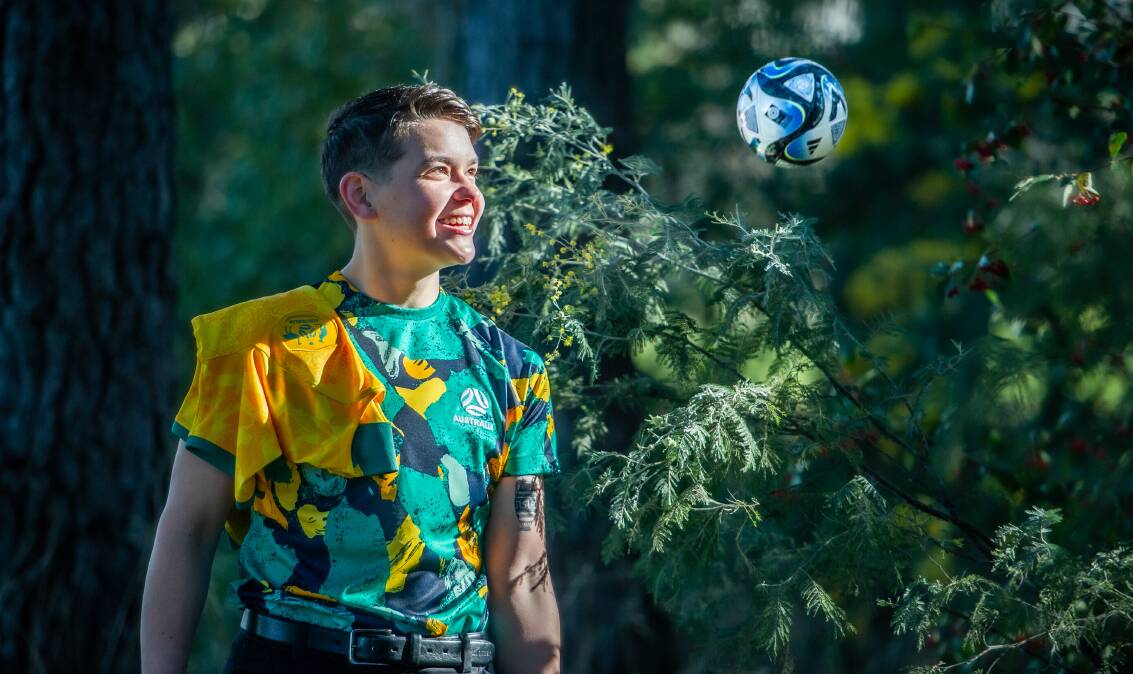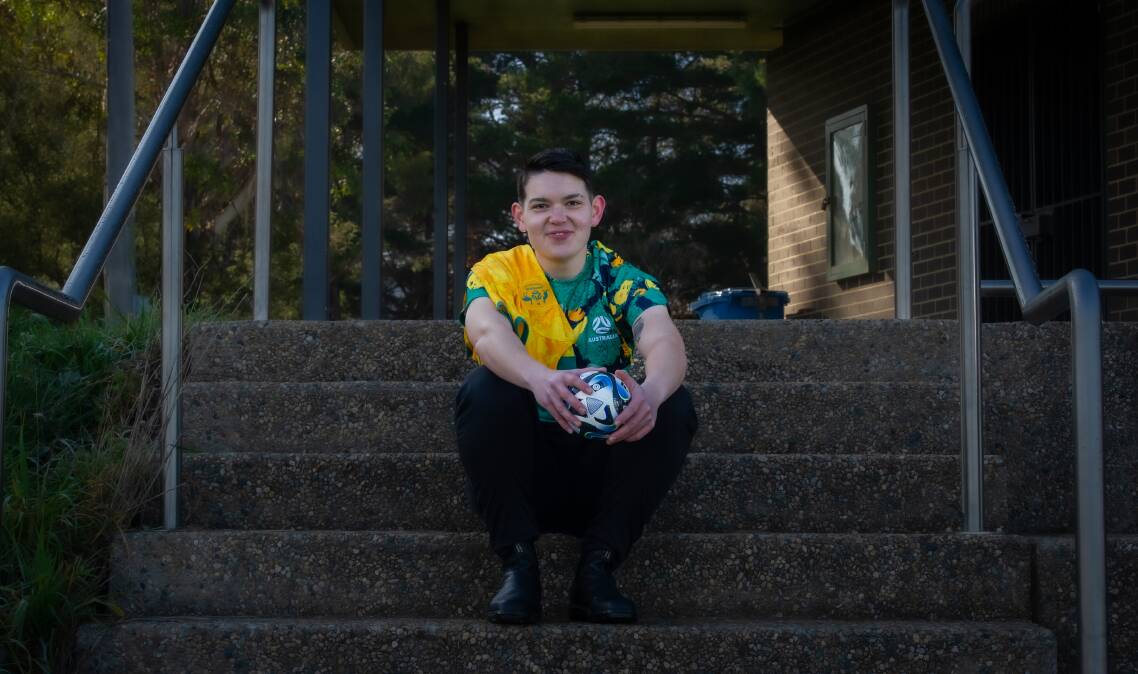The Matildas may have lost the chance to win the FIFA Women's World Cup trophy but they have won Australians' hearts.
Roxie Swart, a striker for ANU Women's Football Club in the National Premier League, had painters working on their house and overheard them talking about "the game" on Wednesday.
Not the "women's game" or the "Women's World Cup"; just "the game". The painters knew the athletes by name and position.
"As corny as it does sound, I feel like [the tournament] really brought Australia together. Not just queer players, but everyone," Mx Swart said.

This year's Women's World Cup had the largest LGBTQIA+ representation in recorded history.
At least 96 athletes across the globe were out and proud, LGBTQIA+ sports website Outsports said, representing about 13 per cent of the athletes who participated. And the Matildas were the most represented team.
"I feel like women's [soccer] has traditionally been queer, but it hasn't been talked about," Mx Swart said.
Mx Swart said it was unreal to watch Canadian Olympic gold medallist Quinn, the only non-binary athlete in this year's FIFA tournament. The commentators getting Quinn's pronouns right "without skipping a beat" also went a long way towards making the sport more inclusive.
"It sounds so good in my ears," they said.
For a long time, they thought representation didn't matter. But they have since realised its importance, particularly after coming out as a trans non-binary person.
"You don't see people who look like you or have similar sort of experiences, so to have that on the world stage actually is really vital to feel like you're not alone," they said.
Mx Swart's favourite part of the Matildas fever was that the wide representation of LGBTQIA+ players was not over-publicised but was normalised by audiences who just loved to watch them play phenomenally and have fun.

The Matildas' semi-final clash with England on August 16 garnered an audience of 11.15 million on Channel 7, making it the most-watched Australian TV program since records began.
Those figures don't even include the sellout crowd of more than 75,000 at Stadium Australia, Optus Sport viewers, and the thousands more that packed into live sites and pubs and clubs across the country.
As the FIFA men's tournament has never had an out LGBTQIA+ athlete from any country, Canberra artist and athlete Zev Aviv said representation in women's soccer would help "emotionally", to make space for queerness in the FIFA Men's World Cup.
But "practically", they said men's sport and men's soccer had a long way to go before being an acceptable space for young gay men.
Mx Aviv only knew two pro soccer players in the world who were openly gay, one of them being Joshua Cavallo from Adelaide United.
"I think sport in general is still a really difficult place for queer men and for non-binary people," they said.







